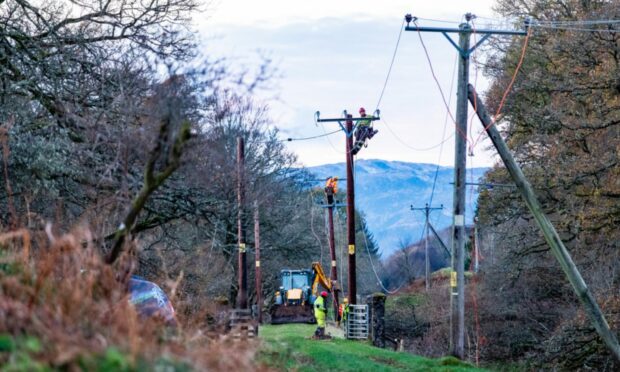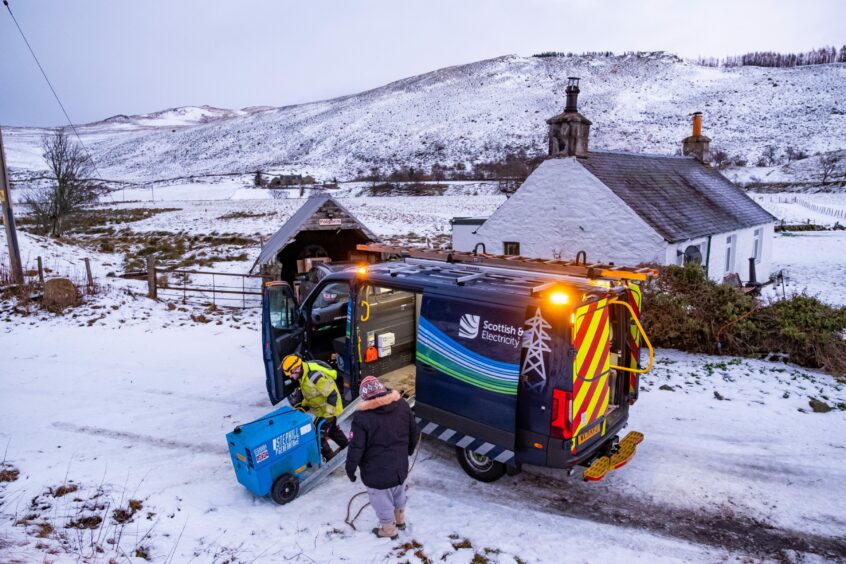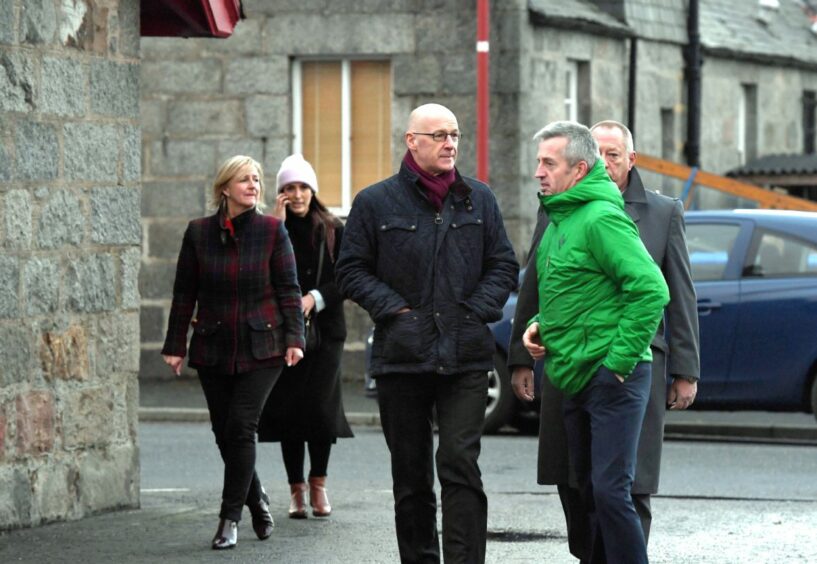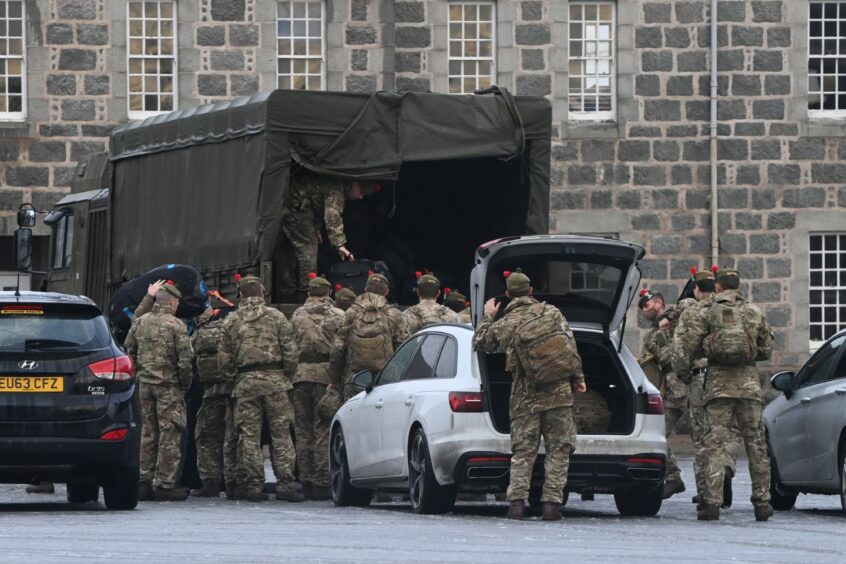Power network operators have been ordered to improve their storm response.
The UK energy regulator, Ofgem, has released a report looking into how each network operator performed their legal obligations during Storm Arwen.
The north-east of Scotland was one of the worst areas hit by the storm.
Scottish and Southern Electricity Networks (SSEN), based in Perth, controls the transmission and distribution of power in the north-east of Scotland.
They have been asked to pay an additional £2.3m in payments for poor customer experience – up from £13.1m.
The money will be paid to Ofgem before being distributed to charities and communities.
Akshay Kaul Ofgem network director told Good Morning Scotland this morning “Storm Arwen was one of the worst storms to hit the UK in more than a decade.
More than one million customers lost supplies
“More than a million customers lost power supplies, but more that 95% of those had their power reconnected within three days.
“But the networks have accepted that the service was unacceptable for customers that had to wait for a longer time and in such miserable conditions.”
After the storm, Aberdeenshire and Moray had more than 3,000 homes still without power after seven days.
There were some extremely harrowing cases caused by the power cuts. An 82 year-old mum from Auchleven, was left with no way to raise alarm for her disabled daughter during the blackout.
The Ofgem report has recommended improvements in severe weather escalation plans, customer communication systems and increasing compensation payment mechanisms.
The total amount of compensation paid by all the networks has now risen from £34m to £44m.
Aberdeenshire East MSP Gillian Martin said: “Many of these recommendations from Ofgem reflect the phone calls and emails from hundreds of people who contacted my team desperate for assistance during Storm Arwen and in the weeks afterwards.
“I welcome these recommendations, which show there is plenty of work to be done to improve how companies respond to adverse weather events, which are only likely to increase in the future.”
‘I think we learned a huge amount’
Jim Savege, chief executive Aberdeenshire Council said: “As we saw, communities were phenomenal at doing this across Aberdeenshire in terms of looking out for each other.
“I think we learned a huge amount between Arwen and Corrie and Malik in terms of having a very early assessment in terms of the scale of the impact there was across our communities.
“I think the report gives that recommendation in terms of looking at network management and vegetation management so those are welcome.
“For our communities to see that is key because they’ve then got confidence and assurance that we can try and prevent those incidents happening in the future.”
SSEN ‘welcomes recommendations’
SSEN says they “welcome the recommendations” and agree that with the increasing reliance on electricity as we move away from fossil fuels, extended power outages are much “less tolerable” for customers.
SSEN has announced that as well as the £2.3m funding for local communities most affected, they will be providing a further £1.2m for network resilience.
They say this investment will be adding to the £100m allocated to network upgrades and maintenance in the north of Scotland this year.
When Storm Arwen hit the north-east with 90mph winds last November, the damage made it difficult for vulnerable people to access support.
The response by communities included hot food and drinks which were made available at a number of locations across Grampian.
Hundreds of armed forces personnel were deployed across the north-east to help communities back on their feet in the wake of Storm Arwen by carrying out door-to-door welfare checks and fixing power lines.
‘I want to see the Scottish Government come forward with plans’
West Aberdeenshire and Kincardine MP Andrew Bowie said: “Six months on, we are still counting the cost of Storm Arwen to rural communities across the north-east.
“Although we saw the huge efforts of engineers, volunteers, emergency services and the armed forces in the days and weeks following Arwen, the lack of resilience planning and communications from energy networks was obvious.
“In tandem with Ofgem’s recommendations, this month I want to see the Scottish Government come forward with plans to forewarn vulnerable residents about what they can expect in the event of another extreme weather event.”




Conversation